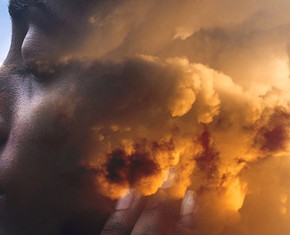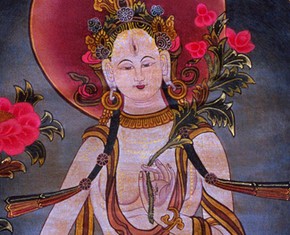The views expressed in our content reflect individual perspectives and do not represent the authoritative views of the Baha'i Faith.
If a single sentence can summarize an entire Faith, these thirteen words from the Baha’i teachings do it quite nicely:
The religion of God is one religion, but it must ever be renewed. – Abdu’l-Baha, Selections from the Writings of Abdu’l-Baha, p. 51.
Most of us think of religion as a fixed, immovable object, complete with time-honored and inflexible rites and rituals, priestly vestments and ancient temples. But the Baha’i Faith has brought us a new concept—that religion is moving, progressive and evolutionary, that each new revelation builds upon the last.
This startling and truly revolutionary idea sees all religion not as disparate and separate beliefs, but as one single, organically-linked system.
If you’d like to experience that religious reality as a natural metaphor, take a hike through a forest of majestic old-growth trees. You’ll see the tall, thriving giants touching the sky in that forest, but you’ll also see the fallen old ones—which provide the womb, the nutrients and the nurturance for the living trees.
The Baha’i teachings say all religion sprouts from the same soil and gets its life from the same rain and the same light. When one tree in that ancient forest dies, another rises to take its place:
Our meaning is this: the religion of God is one, and it is the educator of humankind, but still, it needs must be made new. When thou dost plant a tree, its height increaseth day by day. It putteth forth blossoms and leaves and luscious fruits. But after a long time, it doth grow old, yielding no fruitage any more. Then doth the Husbandman of Truth take up the seed from that same tree, and plant it in a pure soil; and lo, there standeth the first tree, even as it was before. – Abdu’l-Baha, Selections from the Writings of Abdu’l-Baha, p. 52.
My wife and I got married in that kind of gorgeous old-growth forest. On the wooded grounds of the Bosch Baha’i School, in the mountains near Santa Cruz, California, we stood with our friends and family in a circular grove of huge coastal redwood trees and said our wedding vows.
If you ever get the opportunity, you might want to visit that incredibly beautiful place, named the Leroy Ioas Grove after one of the earliest American Baha’is. It has an almost magical quality to it. A ring of huge, 200-foot trees surrounds a large, open, circular space, and when you stand there you feel as if you’re in one of the most majestic spots on Earth. The rich smells of the forest floor fill your nostrils. The light filters down through the grandfathers—what the ancient people called the biggest trees—and dapples the ground. The birds sing. Squirrels chatter. Breezes gently stir the branches and their needles.
In that natural setting, you feel transported, as if you’ve come to your true home, as though nothing man-made can ever match the grandeur of these ancient, enormous living beings.
So I wondered, when we picked that grove for our wedding, how it grew that way, in such a perfectly symmetrical circle. I did a little research, and learned that the coastal redwood variety of the genus Sequoia Sempivirens sometimes reproduces by sprouting from the stump or the root crown—or even the branches—of a “mother” tree. Anyway, that gigantic original mother/father/grandfather tree—which, at one time thousands of years ago, stood in the center of the same circle we did to get married—dropped its cones and seeds in a circle around it, and stimulated the dormant sprouts under its own bark when its adult trunk suffered damage, or during a fire, or when it began to die.
Which means that the original tree, throughout its life, grows the capacity to go on living.
When the end of that first tree’s life approaches, the tree usually dies, decays and falls. New sprouts spontaneously erupt and start to grow around her circumference. Some biologists call the resulting circular formation of trees “fairy rings”—but they’re really a gathering that pays biological homage to the parent tree, by surrounding and sheltering its original ground.
This means that in some ways you can think of those trees, not just as the descendants of their progenitors, but as the growth of one continuous, immortal tree. In fact, since the tree reproduces and begins to re-grow even as it dies and decays, in one sense it never really dies. So in many ways, when you see a giant tree like the coastal redwood, you’re seeing its ancestors, too—exactly like you do when you look into the eyes of any member of the human family.
Just as the lifecycles of all living things sprout from their ancestors and require a new infusion of energy and creative power to begin again, the Baha’i teachings say religion also requires renewal. True religion, Baha’is believe, is progressive and not static; active instead of passive; ever-growing and evolving rather than fossilized and inert:
Religion is the outer expression of the divine reality. Therefore it must be living, vitalized, moving and progressive. If it be without motion and non-progressive it is without the divine life; it is dead. – Abdu’l-Baha, The Promulgation of Universal Peace, p. 140.
With this idea in mind, religion itself becomes something completely different than what we’re probably used to thinking about. Instead of a fixed, unchanging set of dogmas and rituals or a battleground that pits different and irreconcilable beliefs against each other, we can begin to conceptualize religion as one evolving system that allows us to understand our spiritual selves, as a naturally growing and changing force, as a universal reality:
From the seed of reality, religion has grown into a tree which has put forth leaves and branches, blossoms and fruit. After a time this tree has fallen into a condition of decay. The leaves and blossoms have withered and perished; the tree has become stricken and fruitless. It is not reasonable that man should hold to the old tree, claiming that its life forces are undiminished, its fruit unequalled, its existence eternal. The seed of reality must be sown again in human hearts in order that a new tree may grow therefrom and new divine fruits refresh the world. By this means the nations and peoples now divergent in religion will be brought into unity, imitations will be forsaken and a universal brotherhood in the reality itself will be established. Warfare and strife will cease among mankind; all will be reconciled as servants of God. For all are sheltered beneath the tree of His providence and mercy. God is kind to all; He is the giver of bounty to all alike, even as His Holiness Jesus Christ has declared that God “sendeth rain on the just and on the unjust;” that is to say, the mercy of God is universal. All humanity is under the protection of His love and favor, and unto all He has pointed the way of guidance and progress. –Ibid., p. 141.
















Comments
Sign in or create an account
Continue with Googleor